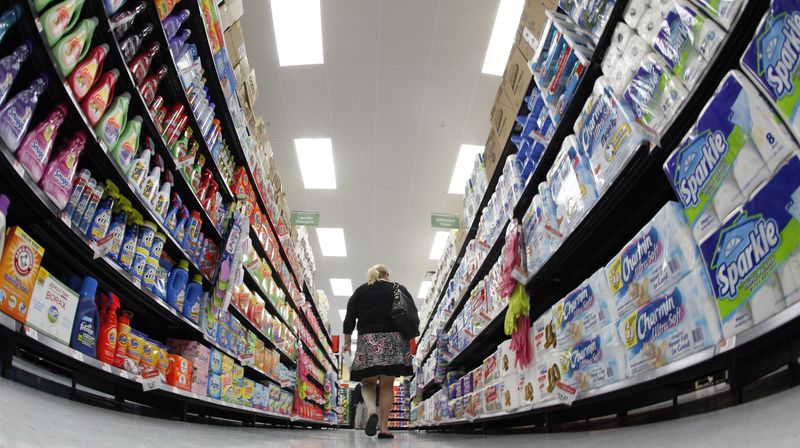WASHINGTON (Reuters) -U.S. business activity gained steam in March as orders rebounded for the first time in six months, according to a survey on Friday, which also suggested that inflation could continue to slow gradually.
S&P Global (NYSE:SPGI) said its flash U.S. Composite PMI Output Index, which tracks the manufacturing and services sectors, increased to 53.3 this month. That was the highest reading since last May and followed a final reading of 50.1 in February.
It was the second straight month that the PMI remained above 50, indicating growth in the private sector. A measure of new orders received by private businesses jumped to 51.2 from 48.5 in February. It was the first time since September that business in general reported growth in new orders.
"March has so far witnessed an encouraging resurgence of economic growth," said Chris Williamson, chief business economist at S&P Global Market Intelligence.
The rise in orders was concentrated in the services sector, with orders in manufacturing still weak, though off the prior months' low levels. A recent tightening in financial conditions in the aftermath of the failure of two regional banks casts a shadow over the outlook for order growth. There are fears that the resulting tightening of lending standards by banks could make credit less available to households and businesses.
Federal Reserve Chair Jerome also alluded to this, telling reporters on Wednesday that "the events of the last two weeks are likely to result in some tightening of credit conditions for households and businesses, and thereby weigh on demand on the labor market and inflation."
The Fed raised its benchmark overnight interest rate by a quarter of a percentage point, but indicated it was on the verge of pausing further increases in borrowing costs, in a nod to the recent financial market stress.
The survey's measure of prices paid by businesses for inputs
dipped to 59.8 from 60.4 in February. According to S&P Global, while raw material and supplier price hikes had eased, firms reported that higher wage bills pushed up cost burdens.
Even as they complained about higher labor costs, businesses increased headcount this month.

Services, which account for a large share of the economy, are driving overall domestic inflation. The survey's flash services sector PMI increased to 53.8 this month, the highest level since last April, from 50.6 in February. Economists polled by Reuters had forecast the services PMI rising to 50.5.
The survey's flash manufacturing PMI climbed to a still-subdued 49.3 from 47.3 in February. It has now contracted for five straight months. Economists had forecast the index at 47. New orders dropped for the sixth consecutive month, though the pace of decline slowed.